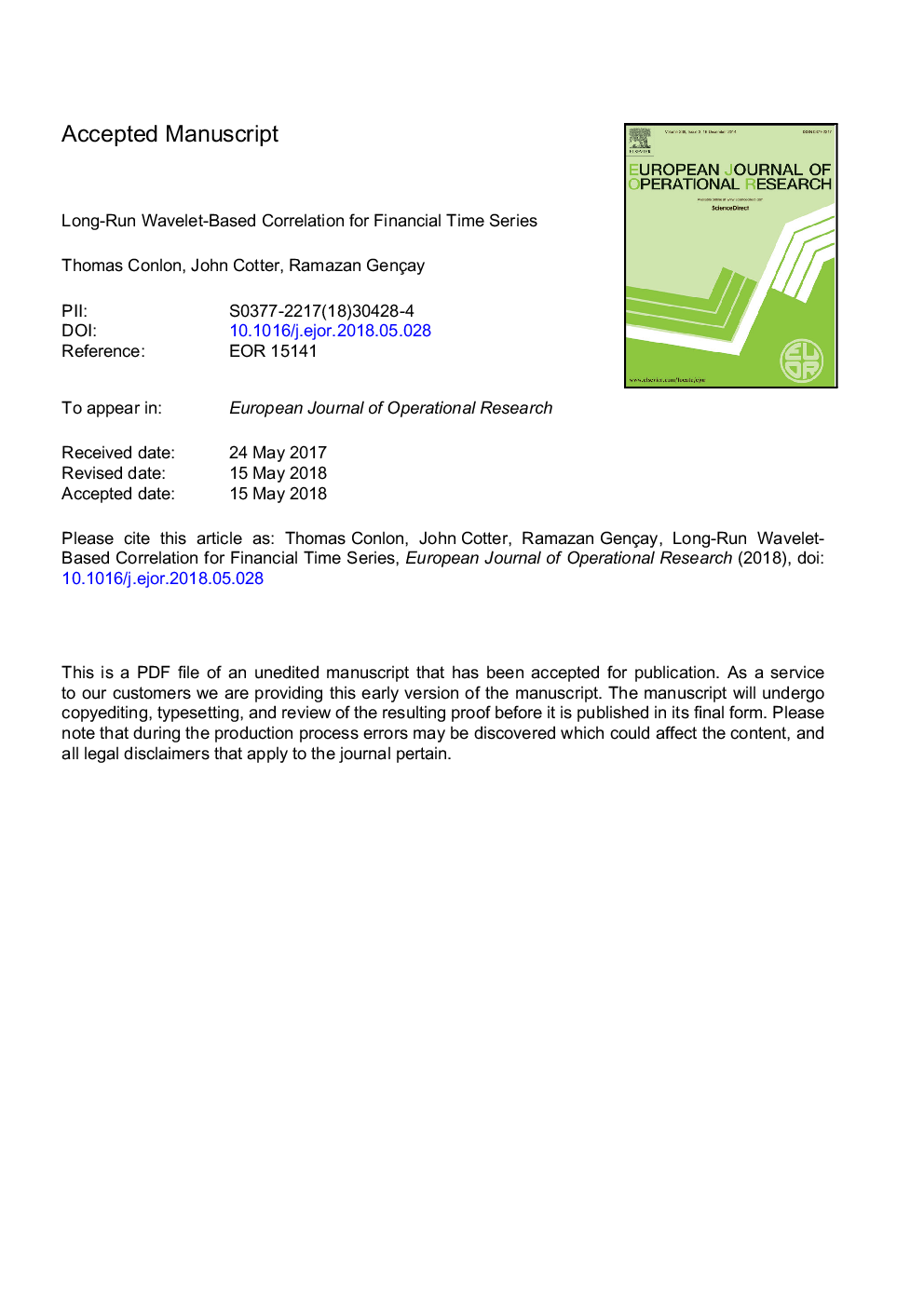| Article ID | Journal | Published Year | Pages | File Type |
|---|---|---|---|---|
| 6894462 | European Journal of Operational Research | 2018 | 42 Pages |
Abstract
The asset allocation decision often relies upon correlation estimates arising from short-run data. Short-run correlation estimates may, however, be distorted by frictions. In this paper, we introduce a long-run wavelet-based correlation estimator, distinguishing between long-run common behavior and short-run singular events. Using generated data, we demonstrate a reduction in bias and error of up to 84.2% and 38.9%, respectively, relative to a traditional subsampled approach. Exploiting the wavelet decomposition into short- and long-run components, we develop a model to help understand the sources of any heterogeneity in correlation. The implication is that short-run correlation may be downward biased by frictions, the latter manifesting as serial- and cross-serial correlation in the raw time series. In an empirical application to G7 international equity markets, we present evidence of increasing correlations at longer-run horizons. The significance for the asset allocation decision are examined using a minimum-variance framework, highlighting distinct optimal allocation weights at short- and long-run horizons.
Related Topics
Physical Sciences and Engineering
Computer Science
Computer Science (General)
Authors
Thomas Conlon, John Cotter, Ramazan Gençay,
